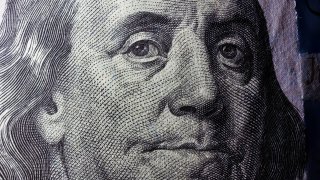Recession Coming? Why the Federal Reserve's High Interest Rate Policy May Backfire
History will not judge the Powell Federal Reserve well should the economy now succumb to a recession. Posterity will not only ask why it allowed the inflation genie out of the bottle by delaying interest rate hikes in 2021 but also why it seemed to learn nothing from that experience and allowed the economy to fall into recession despite hewing to a backward-looking monetary policy.
The Federal Reserve is no stranger to doing too little too late when it comes to monetary policy. This makes it all the more regrettable that today, the Fed once again seems to be repeating the same mistake.
At this week’s interest rate-setting meeting, the Fed again chose to maintain interest rates at 5.25 percent and continue its policy of reducing the size of its balance sheet through bond sales. It chose to do so despite all the evidence that the economy is slowing, inflation is falling, and downside risks to the economic recovery are now building. This heightens the chances that by the time the Fed starts cutting interest rates, it will have waited too long to avoid an economic recession.
We do not have to look too far back for an instance of the Fed having found itself way behind the policy curve with costly economic results. In 2021, at a time when the economy was recovering strongly and receiving its largest peacetime budget stimulus on record, the Fed maintained its zero-interest rate policy. It continued swamping the market with liquidity through its bond purchase activity. The net result was a 40 percent increase in the broad money supply from the start of 2020 to the end of 2021. That contributed importantly to a surge in inflation to a multi-decade high of over 9 percent and a commercial property market bubble.
Fast forward to today, we find the Fed once again very reluctant to change policy course despite mounting evidence of economic slowing, moderating price and wage inflation, and the gathering of downside risks to the economic recovery.
One clear indication of economic slowing is the slackening in the labor market, as underlined by today’s disappointingly weak labor market report. Last month, the economy added only 114,000 new jobs while the unemployment rate rose to 4.3 percent, its highest level in the past three years. Another indication of slowing is the parade of major companies now warning that consumer demand is slowing as households appear to have depleted the large amount of government support that they received during the COVID-19 pandemic. Meanwhile, a sharp manufacturing slump does not bode well for the overall economic outlook.
On the positive side, economic slowing has contributed to considerable progress in reducing inflation from its June 2022 peak of over 9 percent. As measured by the core personal consumption index, the Fed’s favorite inflation index, inflation has slowed to 2.6 percent. That is not far from the Fed’s 2 percent inflation target.
Inflation’s decline has had the effect of making the Fed’s high interest rate policy all the more onerous for consumers and investors. At a time when inflation has more than halved, the Fed’s policy rate has remained unchanged at 5.25 percent. This means that borrowers cannot expect to repay their loans with money that has lost value due to inflation at nearly the same pace as before. This constitutes yet another reason for early interest rate cuts.
Adding to the case for the earliest interest rate cuts is the emergence of a host of downside risks to the economy both at home and abroad. At home, these risks include the slow-motion train wreck now underway in the commercial property market that could trigger another round of the regional bank crisis. The maintenance of high interest rates heightens the likelihood of a wave of commercial property loan defaults that could cause many small and medium-sized banks to fail.
Abroad, the risks include a Chinese economy in deep trouble, a French economy that is dealing with high debt and the specter of political ungovernability, and a potential Israel-Hamas war spreading to the rest of the oil-rich Middle East. A faltering world economy would constitute a significant headwind to our economic recovery.
History will not judge the Powell Federal Reserve well should the economy now succumb to a recession. Posterity will not only ask why it allowed the inflation genie out of the bottle by delaying interest rate hikes in 2021 but also why it seemed to learn nothing from that experience and allowed the economy to fall into recession despite hewing to a backward-looking monetary policy.
About the Author: Desmond Lachman
Desmond Lachman is a Senior Fellow at the American Enterprise Institute and was a deputy director in the International Monetary Fund’s Policy Development and Review Department, and the chief emerging-market economic strategist at Salomon Smith Barney.
Image: Shutterstock.


